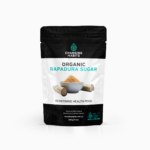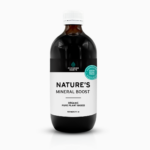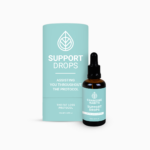A couple of weeks ago on 4 Corners The Autism Enigma Documentary was aired. This is a documentary that was filmed in the US, Canada and UK. The program bought up more questions for me with regards to the growing incidence of Autism. So I went searching and found some astounding research that may be of benefit to parents with children diagnosed with Autism Spectrum Disorder as well as depression and other mental disorders.
I had hoped to be able to give you the link to this amazing documentary but unfortunately for some reason the ABC has taken it from the ABC Iview. You can though go and read some of the transcript at the 4 Corners website.
The Documentary – The Autism Enigma
Autism Spectrum Disorder (ASD) is the fastest growing developmental condition in the western world. Is it genetic or environment? There is no typical case and there is no accepted cure for it. Fifty years ago it was considered rare, affecting one in 10,000 children. Now the number of children being diagnosed with ASD in the United States is one in 90. The incidence is also rising dramatically in Australia.
To add to this troubling picture, in North America and other parts of the world, there’s evidence that ASD rates are much higher in some immigrant populations. So much so that ASD has become known as “the Western disease”.
But what is causing this dramatic rise, and why do some communities have higher rates of ASD? Some experts suggest it’s because doctors are better able to diagnose the condition, and the criteria for autism diagnosis has been expanded. Others are asking if there’s a possible environmental cause. Could the food we eat and commonly used drugs, intended to kill infection, play a part in the development of certain forms of autism?
The Autism Enigma looks at a controversial theory examining the possible links between harmful bacteria in a child’s gut and ASD. This documentary follows the work of an international group of scientists researching the human intestine and the clues their work might hold for treating and perhaps preventing this baffling disorder.
The film features the stories of two mothers with autistic sons. One, a Somali immigrant called Adar, has been working with scientists who are exploring why autism is more prevalent in her immigrant community. The other is Ellen Bolte, from Chicago, who began her own investigation to see if she could help her son who’d been diagnosed with autism. Using home videos she shares the story of her search for answers and the treatment she believes has given her son an opportunity to learn language, play and become more socially interactive.
GUT Bacteria (Microbiosomes) and the importance in Brain Development and Continued Mental and Physical Health.
The bells are ringing loud and clear, more and more the evidence is stacking up against the use of antibiotics for every infection and ailment. Yes they are lifesaving, but when used for every infection, they have not only individual health consequences but public health disasters as is the case now with antibiotic resistance bacteria or super bugs as they are known.
I was talking to my Dad about the early use of antibiotics. (he was a pharmacist in the 1950’s) My Dad told me a story of his cousin. When they were both 20 (in the 1940’s) his cousin was given penicillin and within a month he passed away, he died from penicillin poisoning. Dad told me that penicillin was seen as the miracle and was used for every infection but it also had dire consequences for his cousin.
A human being is an individual who has grown from an egg and sperm which contains genes from both. This seems obvious, but a growing group of scientists and health advocates, believe this definition incomplete. They see the human body as an ecosystem which not only includes our human cells but trillions of bacteria. These bacteria are found in the GIT, mouth, scalp, skin, and all the spaces in-between.
A healthy adult human has around 100 trillion bacteria in the gut alone. In good times the cells and microbiomes live in harmony, helping each other, feeding each other and communicating for the greater good of the health of the human. Neither wishes the other harm. In bad times, though, this alignment can break down. Then, the microbiome may cause disease. The fact that bacteria can cause disease is nothing new but it is thought that this breakdown of the symbiotic relationship between our human cells and microbiomes may contribute to the chronic illnesses that are now, at least in the western world, the focus of medical attention, including, obesity, diabetes, heart disease, asthma, multiple sclerosis and neurological conditions such as autism, depression, dementia. The microbiomes harmony with our cells seems to play a crucial role in continued health.
The use of antibiotics disturbs the balance of these organisms in our body, thus interfering with a communication system that helps with immunity, the brain and nervous system as well as our hormones. If we only knew back in the 1940’s what we know now, but we didn’t. Having said that we are beginning to know better and with this knowledge we can do better and help ourselves and future generations.
My father was against the use of antibiotics except in the case of a life threatening situation, as a result at 52 years of age I’ve never had an antibiotic and neither have my three adult children. We are rare in this day and age. But the more people understand about antibiotics the more people will be able to make educated decisions about what is a good time to use antibiotics and what is a time to use other forms of health care. Even the government understands the folly of the use of too many antibiotics. There is a campaign put out my NPS which educates people about the fact that they should not expect antibiotics from their doctors for every ailment. This is to prevent the rampant increase in antibiotic resistant bacteria.
From the time you are conceived to the day you die bacteria and microorganisms play a vital role in health. While a mother is pregnant bacteria in the bowel of the mother manufactures the vitamin K that is important to the health of the baby.
Before the birth of a child the bacteria of the mothers vagina changes so that the first exposure the baby has to bacteria in the outside world happens as they pass through the birth canal. As a mother goes into labour the two dominate bacteria species in the vagina are Lactobacillus and Prevotella and if a child is born naturally these are the two dominate bacteria they are exposed to. If a child is born by caesarean section they typically show microbial communities associated with the skin including Staphylococcus, Corynebacterium, and Propionibacterium.
A mothers colostrum and breast milk is filled with immunological factors to help colinate the bowel of the baby with the right bacteria. A young baby and child putting everything in his/her mouth enables the immune system to practise and become stronger. Exposure to bacteria and viruses is an important part of a babies strengthened immune system.
There are many factors that may be part of the growing sickness both mentally and physically that now afflicts modern society and other cultures who take on the so called perks of modern living. Many of them seem like they are in the interest of public health or to feed a starving planet as is the case with the chemical modification of the wheat grain over the last 40 years and the introduction of genetic modification. What is frightening is that one of the ways genetic modification works is by destroying the intestine of the offending pest. My question is – what does it do to our intestine? At no point has the question been raised with the chemical and genetic modification of food species as to whether the foods are then safe for human consumption.
Following are some things that should be addressed but are not defined to what may be the cause of the autism epidemic and health crisis we now face both physically and mentally.
A woman (before and during pregnancy) taking antibiotics or other medication that destroy bowel flora and the microbiomes consumption of foods with preservatives that destroy bowel flora increase in caesarean sections decline in breast feeding exclusively for 6-12 months top up feeding to new borns with infant formula prolific use of antibiotics before the age of 3 proliferation of vaccinations combined with antibiotic use introduction of foods with preservatives to small infants consumption of genetically modified foods consumption of wheat varieties that have been chemically modified consuming foods based on new technology, such as hybrid strains of grains, additives, preservatives and flavourings.
All these factors decrease the ability of the body to live in harmony with bacteria for their mutual benefit. Bowel flora (probiotics) have many functions including; communication with the immune system and because of this, they may have an influence on autoimmune diseases, such as multiple sclerosis and lupus. Gut bacteria help with the development and functioning of the brain and nervous system, preparation, absorption and utilisation of vital nutrients, including B6 and vitamin K. Gut bacteria may have an influence on the body’s use of vitamin B6, which in turn has profound effects on the health of nerve (brain) and muscle cells.
The growing Autism, Asperger’s and Autism spectrum disorders that now effect this generation is a disaster. The incidence of ASD has grown from 1 in 20,000 just 25 years ago to now 1 in 88.
In the 60’s a cold mother was to blame, then as the disorder increased people grasped at anything to blame. Vaccinations are thought to be a problem. While some research debunks this idea other research shows it to be the culprit. Interesting to note that in Italy August 2012 a court awarded a family damages to their child with Autism as a result of vaccination.
But is vaccination to be the sole blame for this dilemma or could it be a combination of factors such as increase in c-sections, non-breast feeding, antibiotics at a young age, poor diet and the evident decrease in bowel flora with each successive generation. There is evidence that shows vaccine damage is more likely if the child has had antibiotics than if they haven’t. I’ve not seen a complete study on all these factors but I’m sure it is not far away.
The more we learn about the importance of the microbiomes in our body the more cautious we must become to prevent their disharmony. The epidemic we now see with autism, depression, obesity, heart disease and cancer may have some bearing on this disharmony.
There are many factors that we need to address, but by decreasing or even crossing ones off the list that may be part of the puzzle, then perhaps we can decrease the mental and physical disease that not only afflicts our young but also every age group in the modern era.
At this point vastly reducing the prescription rates of antibiotics to people of all ages, and particularly to young children and pregnant mothers is the first priority. Along with this is a much-needed ban on the use of growth hormones and antibiotics in conventional cattle-raising operations, which end up in the food products eaten by many Australians every single day.
How do you improve GIT bacteria and put it back into harmony?
The ideal balance of beneficial to pathogenic bacteria in the GIT is about 85 percent good bacteria and 15 percent bad (not sure I like calling them good and bad I rather call this the harmonic mix). Maintaining this homeostatic ratio is what it’s all about when wanting to optimise GIT health. Historically, people didn’t have the same problems with their gut health as we do today for the simple fact that they got large quantities of beneficial bacteria, i.e. probiotics, from their diet in the form of fermented or cultured foods, which were invented long before the advent of refrigeration and other forms of food preservation.
Every civilisation has fermented foods, yogurt, kefir, cheese, kimchi, sauerkraut, kombucha sourdough ferments etc. But since modern food many of these cultures and traditions have been lost and replaced with foods filled with preservatives rather than traditional preservation methods. These preservatives act like antibiotics in destroying part of the bowel bacteria as well as they could influence other microbiomes in the body.
Fermenting your own foods is a fairly straight-forward and a simple process, if you have the time and inclination. Taking probioticsto help bowel flora seems to be a regular undertaking, and the marketing and advertising I see for these products is escalating. But do you know how your probiotics are being made? Are they manufactured in a chemical laboratory using acid and alkaline washes or are they based on old fashion food ferments. I don’t know what it is but every time a food substance or nutrient is found to be good for us, science seems to have to make it better than the natural way. I’m into culture and tradition I’m very wary of supplements, new foods and nutrients that are made in a chemical laboratory not based on real foods.
Among many of the probiotics on the shelf it’s unusual to find a probiotic supplement containing more than 10 billion colony-forming units. But when real food such as vegetables, grains, dairy and real foods are fermented with vegetables using a starter culture such as whey, they have a 10 trillion colony-forming units of bacteria. Literally, one serving of fermented vegetables is equal to an entire bottle of a high potency probiotic! Fermented foods also gives you a wider variety of beneficial bacteria not just a couple.
This is the very reason why I produced the probiotics that I have. Changing Habits All Natural Probiotics is based on real food including; rice, spirulina, linseed, alfalfa grass and seed, sweet potato, sunflower seeds, quinoa, amaranth, pumpkin seeds, chia, ginger and broccoli which we have fermented with a natural culture, then dried and put into our containers. It’s the busy persons way to have real fermented foods. I usually put my probiotics into my smoothies or more often than not on my salads for extra taste.
So in order to increase the harmony in the bowel and restore bowel health and bacteria as well as the rest of the body – there are a number of things that you can do.
Cut down on antibiotic use (seek medical advice). Cut down on medications that interfere with the microbiomes such as the pill, steroids and HRT (see medical advice) Cut out all foods with chemical preservatives (all the 200’s food additives) Buy meat free of hormones or antibiotics – grass fed is best, ask your butcher Increase your use of fermented foods Make up bone broths and consume them on a daily basis (recipe in August newsletter) Take probiotics made from food not in a chemical laboratory Take out foods from the diet that may be feeding the non-beneficial bacteria – this includes wheat as a starter as well as all additives, preservatives and flavourings and modified foods Exclude all genetically modified foods from the diet (http://truefood.org.au)
By following Changing Habits Changing Lives and starting to increase the amount of fermented foods you consume includingChanging Habits All Natural Probiotics and following the steps above, you can start to repair a digestive system that is needing some tender care and then in turn help other ailments that effect your children and yourself.
Happy Changing Habits
Cyndi
References
http://www.whale.to/a/neuroscience.html
http://www.scientificamerican.com/article.cfm?id=the-neuroscience-of-gut
http://www.wired.com/wiredscience/2011/08/killing-beneficial-bacteria/
http://articles.mercola.com/sites/articles/archive/2012/06/27/probiotics-gut-health-impact.aspx?e_cid=20120627_DNL_artNew_1
Peas and Qs – Why is There Green Food Dye in Our Peas?
Did you know that your tinned or frozen peas may contain food dye to make them greener?! Cyndi explains more here and shares some tips for checking whether your peas are dye-free.








0 Comments